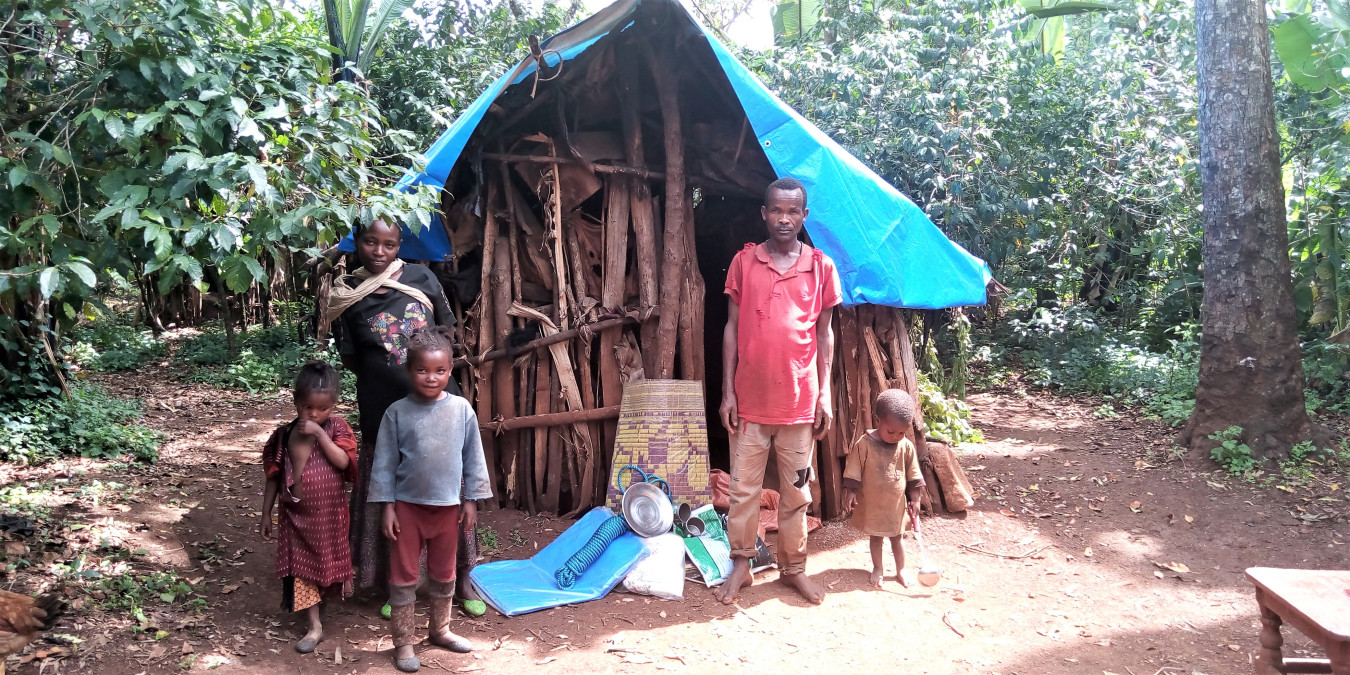Supporting Ethiopia’s internally displaced
Published: Jun 19, 2020 Reading time: 3 minutes Share: Share an articleIn 2018, Ethiopia recorded the highest number of new conflict-related displacements in the world, with 3.2 million people becoming internally displaced due to ethnic tensions and natural disasters. Intercommunal violence between West Guji and Gedeo was one of the main drivers forcing people to flee their homes and seek refuge in neighboring towns. While the number of internally displaced people (IDPs) in Ethiopia dropped to 1.8 million in 2019, many people remain unable to fulfill their basic needs.

We left everything behind
Chuchu Bariso was born and raised in West Guji, where he continued to live until conflict forced him, his wife, and their seven children to leave on short notice. In their rush to avoid getting caught in the crossfire, the family was unable to gather their belongings.
Chuchu and his family found refuge 50 kilometers away in Yirga Cheffe District, within the Gedeo Zone. With no money for transportation, they were forced to make the journey on foot, which was particularly challenging since his youngest daughter was just one year old.
Much to their relief, they were warmly welcomed into their new community and offered financial support by the local church. Chuchu says: “My family and I have been living here for almost two years and we have not faced any threats. It has been peaceful here so far.”
PIN supports 1,300 IDPs
IDPs who seek refuge in neighbouring areas are often vulnerable and lack access to adequate housing, services, and other resources. To relieve some of the burden on Chuchu Bariso’s host community, People in Need (PIN), with financial support from Lutheran World Relief, secured shelter and non-food items for 250 households, benefiting a total of 1,300 people.
“We received tarpaulins, sleeping mats, bed sheets, mosquito nets, plates, ladles, drinking glasses, and rope,” Chuchu says. “My family and I are very grateful. These items are very useful, and we wouldn’t have been able to afford them on our own.”
Because intercommunal violence is often a reoccurring problem, IDPs who return to their homes often face repeated cycles of displacement. For this reason, many IDPs continue living in their host communities with no plans to return home until they feel completely safe. Those who consider returning only do so once they believe that the underlying causes of the violence have been addressed at least partially.
When asked for his thoughts on returning home, Chuchu was unequivocal. “I don’t plan on going back; this is our home now, and with God’s permission, I am planning to start a business soon to support my family.”
PIN’s extensive experience in conflict-affected countries demonstrates that humanitarian organisations can make a meaningful difference in the lives of people forcibly displaced from their homes. That’s why we will continue assisting IDPs in Ethiopia, and around the world.



